|
Something very exciting today - Carillon-Sortie by Henri Mulet. I recorded it a few days ago in two takes. The first one was basically a warm-up and a general test of this delightful instrument. This A.J. Spencer's reed organ (7 stops, 2 manuals and pedals), model "University Organ", No. 2170 from 1929 was recently donated to Vilnius University and placed at VU St. John's church. The instrument was beautifully restored by M.A.M. Fisharmonie i Organy (Marcin Majak and Jakub Wszołek) from Gdansk, Poland in December 2022-January 2023. Hope you will enjoy it! Score: www.sheetmusicplus.com/title/french-masterworks-for-organ-sheet-music/1557906?aff_id=454957 We support Ukraine: www.blue-yellow.lt/en If you like what I do, you can buy me some coffee: www.buymeacoffee.com/organduo PayPal: PayPal.Me/VPinkevicius My Hauptwerk setup: www.organduo.lt/tools.html Total Organist - the most comprehensive organ training program online: www.organduo.lt/total-organist Secrets of Organ Playing - When You Practice, Miracles Happen! organduo.lt Listen to my organ playing on Spotify: open.spotify.com/artist/0ckKPIvTWucoN3CZwGodCO?si=YWy7_0HqRvaZwBcovL-RKg
Comments
SOPP699: How Rorate caeli, ornamented chorale prelude by Jeanne Demessieux is constructed?1/25/2023
Vidas: Hello and welcome to Secrets of Organ Playing Podcast!
Ausra: This is a show dedicated to helping you become a better organist. V: We’re your hosts Vidas Pinkevicius... A: ...and Ausra Motuzaite-Pinkeviciene. V: We have over 25 years of experience of playing the organ A: ...and we’ve been teaching thousands of organists online from 89 countries since 2011. V: So now let’s jump in and get started with the podcast for today. A: We hope you’ll enjoy it! V: Hi guys! This is Vidas. A: And Ausra. V: Let’s start episode 699 of Secrets of Organ Playing Podcast. This question was sent by Rien Schalkwijk, our friend from YouTube, and he wants to know how Rorate caeli, ornamented chorale prelude by Jeanne Demessieux is constructed. Have you played this piece, Ausra? A: Oh yes, I think everybody has played it. Here's my video. V: Wonderful piece, wonderful composer who lived too-short life and left some amazing works, and one of them is a collection of twelve chorale preludes on Gregorian chant themes, Opus 8 from 1947. And the first one is Rorate caeli, ornamented chorale. What can you say about it, Ausra, from the first glance? A: Well, that it’s very easy and very beautiful. V: The easiest from the collection. A: Oh yes, sure. V: Anything else? A: (laughs) Am I in exam room? Okay, well I see the hymn tune on the right hand, in the right hand, played on the… V: Cornet. A: …cornet, yes. If you don’t have cornet, single cornet stop, you can make up cornet of your own. It can be the full cornet or just a few stops from the cornet. Or if you don’t like cornet sound, you could replace it with some kind of soft reed, for example oboe or krummhorn. V: Although when composer has explicitly asked for cornet, I think it’s better to use it than to switch it to something else, right? A: (laughs) Do you think she would let’s say come back from the dead and would start to avenge you for not following her registration closely? V: I wouldn’t dare to find out! Basically, what else is interesting going on? I noted that she treats the right hand part as sort of ornamented chorale, but it’s like a cantilena style - sometimes the French composers liked to interpret Gregorian chant tunes like this playing left hand accompaniment with pedals, and the right hand moving faster with solo registration. So that’s what happens in the right hand part. It’s I think almost totally diatonic, almost without any accidentals, written in D minor key, the first mode basically, it doesn't have to be in D minor, but in the mode of D with one flat, but all the chromatics happen in the accompaniment parts, in the left hand parts and sometimes even in the pedal part, right? And that’s what makes this chorale prelude so French-like: chromatics. A: Yes, and also modes - that you know it’s not like clear major or minor, but it’s modal. Because you mentioned that it’s written in D. V: The right hand part. A: The right hand part. But you could also add that it’s in F, too. V: The beginning in F, and then of course ending in D. A: And that’s what you can very often find in modal music, that major and minor sort of interchanges all the time in the piece. V: Mm hm. And it has like ABA form, because in the middle, we have something else after this opening phrase, middle section, and then the beginning repeats with that cornet registration at the end, reminding us of that beautiful antiphon. It’s like the structure of the chant itself: the antiphon, then there is the psalm, then there is antiphon again, right? A: Yes. V: But the psalm is not exactly identically written as it’s in the chant. It’s more or less freely interpreted. A: And what I like in general about Demessieux tune about this composition is she has very improvisatory compositional style. Basically, playing her music is like improvising. V: Yes, she was excellent improviser student of Marcel Dupré. A: And she avoids direct repetitions of musical material. If she repeats something, it’s a little bit different each time, so it gives such a liveliness to her music. V: And probably the impression of a surprise, unpredictability, right? A: Yes, true. For example, at the end, she finishes on this D major chord. V: Which you wouldn’t expect. A: Sure. Because it’s not like Bach’s fugue, where often the minor key changes with the major key at the end. V: And in general, you wouldn’t expect the piece to end in D, because it’s always in F, in F, in F - just the ending of the antiphon is in D, right? A: Yes. V: So, I think we could draw a useful lesson from this chorale prelude and try to improvise on any other chant that we want. Something similar with the cornet registration and using chromatics in the left hand part and the pedals. A: Yes. And another feature of her music that often it’s, it sounds sort of easy, like this piece, but it’s really complex. And if you are thinking you could improvise to do something similar, well, maybe you could do, but it would be difficult. V: Right. If we would stop at every given measure, and maybe at every half note, that’s where the harmonic rhythm is, every half note you see a different chord. You could actually analyze each chord. And they would be very complex chords. Even when there are three notes, like at the beginning without pedals, you could see they are seventh chords and diminished chords, and augmented chords, even without pedals. Basically so to say it’s like a four-note chord with one part omitted. It’s still a dissonant chord, right? A: Yes, but you know, I don’t think it would make much sense of doing a Roman numeral analysis of a piece like this… V: No, no. A: Because you always need to keep in mind, it’s not Mozart, it’s not Bach, it’s all modal. So you need to keep the modes in mind while analyzing music like this. V: Very good. A: And of course, add more like you said, chromaticism and accidentals, because it’s not like medieval modal music, but it’s like 20th century modal French music. V: Yes. So guys, try your hand at improvising like Jeanne Demessieux, and this modal of Rorate caeli is probably the best way to start. And I’m looking forward, Ausra is also looking forward to hearing how your improvisations go. Upload it to YouTube and send us a link. A: Yes, we would be glad to listen to it. V: Wonderful, and please send us more of your questions. We love helping you grow. And remember, when you practice, A: Miracles happen. V: This podcast is supported by Total Organist - the most comprehensive organ training program online. A: It has hundreds of courses, coaching and practice materials for every area of organ playing, thousands of instructional videos and PDF's. You will NOT find more value anywhere else online... V: Total Organist helps you to master any piece, perfect your technique, develop your sight-reading skills, and improvise or compose your own music and much much more… A: Sign up and begin your training today at organduo.lt and click on Total Organist. And of course, you will get the 1st month free too. You can cancel anytime. V: If you need one-on-one coaching, you can check out our page on Buy Me a Coffee platform. A: Find out more at https://buymeacoffee.com/organduo In a recent recital at Vilnius St. Casimir's church I played Carillon-Sortie by Henri Mulet. Today it's my pleasure to share it with you. Hope you will enjoy it! Score: www.sheetmusicplus.com/title/french-masterworks-for-organ-sheet-music/1557906?aff_id=454957 We support Ukraine: www.blue-yellow.lt/en If you like what I do, you can buy me some coffee: www.buymeacoffee.com/organduo PayPal: PayPal.Me/VPinkevicius My Hauptwerk setup: www.organduo.lt/tools.html Total Organist - the most comprehensive organ training program online: www.organduo.lt/total-organist Secrets of Organ Playing - When You Practice, Miracles Happen! organduo.lt Listen to my organ playing on Spotify: open.spotify.com/artist/0ckKPIvTWucoN3CZwGodCO?si=YWy7_0HqRvaZwBcovL-RKg Yesterday I started to practice Adeste fideles by Jeanne Demessieux on Melcel Chamber Music Hall sample set by Piotr Grabowski and my Hauptwerk setup. I noticed that this piece was too difficult to record the same evening so this morning I came back to it. It is based on the well-known Christmas carol and reminds of a musette with the long pedal point on the note D. The stops alternate between the flute combination and the dialogue with the Clarinet (in this case I use Krommhorn stop). To enhance the acoustics I selected Caen impulse response reverb with 6 seconds of reverberation by Sonus Paradisi. Hope you will enjoy it!
Score: https://www.sheetmusicplus.com/title/... Thank you for your support! You get early access and I get to keep going. Get early access: https://www.buymeacoffee.com/organduo https://www.patreon.com/secretsoforga... Pastoral Song starts with a theme in a single voice. I play it with Trompette Harmonique. The same episode is repeated in chordal texture on the Flutes 8' and 4'. Then Trompette travels into the tenor range while flutes accompany it in the right hand. The voices switch several times. The piece ends with the chordal texture again. I like how the ending is constructed with the repeat of the fragment. Langlais uses his signature modal writing for which I love him very much! I wanted to play this Prelude from Organ Book by Jean Langlais but it needed some French-sounding stops. So today I have downloaded a sample set of Saint Jean de Luz by Piotr Grabowski and tested it out with this piece. I think it sounds splendid. Lush and sonorous flutes and responsive Swell pedal was just what I needed for this composition. I hope you'll enjoy it too... I was worn out today from editing Ausra's Buxtehude video with multiple camera angles so didn't want to start practicing energy demanding Kauffmann before tomorrow. But I knew I couldn't miss a day without recording just because I'm tired. So I really had three choices - to play Ave Verum by Mozart, Prelude by Langlais from his Organ Book or to record Gymnopedie I by Erik Satie. The Langlais piece required an organ with a swell box and I haven't yet installed one. Mozart could have worked but I felt drawn to Satie. This famous Gymnopedie I reminds me of a summer in a lake - I'm sitting in a boat. A little breeze is rocking the boat. And I'm dreaming... It was really fun to play Gymnopedie No. 2 by Erik Satie. It's probably less well-known than No. 1 which I recorded yesterday but nonetheless very beautiful. This sample set worked very well - gentle and sweet. I wanted to complete this set of all 3 Gymnopedie's by Erik Satie. Out the three, this last one is the least known to me. I don't think I've heard it before. But the character and the structure is very similar to the preceding two. I hope you will enjoy it!
Vidas: Hi guys! This is Vidas.
Ausra: And Ausra. V: Let’s start episode 488 of Secrets of Organ Playing Podcast. This question was sent by Jeremy. And he wrote on Basecamp, when he received a question, What was he working on today? He wrote: Went to an organ recital tonight. First time I had heard Tournemire played. Will be looking into his work. V: It’s not a question, but an observation, right? A feedback. What do you think about Tournemire, and it’s interesting how your perception of Tournemire changed over the years A: Well, let’s say that, to tell the truth, that I encountered Tournemire quite late in my life, as a professional organist. V: Mm hm. A: Because you know, now, late, back in our lives when we were very young, not many organists in Lithuania knew Tournemire or played Tournemire. That’s even, we studied at the Academy of Music. Have you encountered Tournemire? V: Maybe your teacher Balys Vaitkus might have known it. A: Well, yes, but he never gave me Tournemire’s works to play or said anything about him, so I don’t know. V: I’m sure some of the teachers might have heard his name, but never really played his music. A: In general, I would say that Lithuanian understanding of organ repertoire is quite narrow. V: But it’s changing now… A: It’s changing… V: Because of new possibilities to download free scores from the internet. A: Yes, I guess getting access to the scores was a big problem 20 years ago, but it’s not now. V: Do you think people in Lithuania are more downloading free scores, or sometimes buying them? A: Well, I think through downloading. I don’t think people have much money for scores. We don’t understand importance of supporting, you know, the music… V: Industry. A: Industry. V: Publishers. A: And too bad, it’s just too bad. V: All right. I think I maybe got introduced to Tournemire also later in life, but my first encounter with him was through Dupre’s, I think, memoirs. I also read Tournemire’s memoirs, too. Or at least, an excerpt from it, like a shortened passage. I remember Tournemire being a very great proponent of organ improvisation, and saying an organist who cannot improvise is only a half organist. And that really hurt me. So I started to improvise. A: So I guess 99% of Lithuanian organists are not real organists, because we can’t improvise. V: According to Tournemire. A: Yeah. I guess, you know, it’s a great French tradition of improvisation. But we were raised in a different environment, because somehow in Lithuania, improvisation was always associated with jazz, and jazz was associated with United States of America, and it was an ultimate evil, in those times. So basically, while being professional musician, you didn’t get much chance to learn how to improvise unless you would do it on your own. And even in that case, it was more like jazz improvisation, not like classical improvisation. V: Do you think jazz was illegal in Soviet Union? A: Well, I will not speculate about it, because I’m not sure, but of course, it wasn’t supported. V: Uh huh. Jazz musicians had a much harder time to get attention from concert organizers. A: And since church music wasn’t developing during the Soviet era, so that you could not learn organ improvisation as well. Even now, I don’t think anybody is teaching seriously. V: Yeah, just from time to time they have courses. But maybe with time, something will change. Of course now, people are not limited to physical courses that they take in Academy of Music. They can do self-study from textbooks, from videos, studying masterworks of other composers, taking as a model, sightreading. That’s how I learned. And I’m still learning. The learning process never finishes. And I hope to improve, too. A: So what do you think now about Tournemire’s music? Do you find it very improvisatory, or not? V: Yeah. At first, it was very difficult to understand what’s going on, because it was so spontaneous, so free and rhapsodic in nature, and it seemed like, besides those Gregorian chant melodies which you could see on the page, anything else was written sort of, a little bit by chance. To me, a little bit at that time, I thought so. And then I understood one thing about genius. That it’s very difficult to analyze genius work. Sometimes genius, simple music is very, is genius too, like simplicity, in Mozart music, you could feel the genius like that in simplicity, elegant, poetic simplicity. But sometimes, it takes genius to analyze a work which is very spontaneous and hard to predict what’s going on. So I think Tournemire is like that. A: So do you think his music is easily comprehended to amateurs? V: No, no. A: What about general audiences? Would you suggest if you know that you are playing an organ recital for a completely uneducated musically people, would you play Tournemire for them, or not? V: It would be the same rule as with any modern composition, modern organ composition. I would probably need to add some well-known pieces from classical repertoire in between of modern and unfamiliar pieces. So the same goes with Tournemire. If I wanted to add something from his cycle L’Orgue Mystique, which involves organ masses from every Sunday of the liturgical year, I would need to add some classical baroque piece, Bach chorale, before that, or maybe some romantic work afterward, or even some lighthearted scherzo, for the audience to understand and appreciate Tournemire also. But in general, I would say Tournemire sounds sweet enough to my ears, because they are developed, and I think it depends on how much a person is used to the dissonances. And we can surely find many more composers in French tradition who created more dissonant music that Tournemire. Definitely. Vierne’s later symphonies are more dissonant Than Tournemire’s, I would think. But it doesn’t mean that dissonant music cannot be played and appreciated. A: Yeah. V: Agreed? A: Yes, I agree with that. Although when talking about Vierne, I think it’s easier to understand him easier than Tournemire, because he has clear forms. Because in terms of compositional, his pieces are very well-shaped. So I guess that makes them easier to comprehend. V: So anyway, guys, if anybody is interested in the French tradition, or learning improvisation in that model system, you would do very well in researching more about Tournemire’s work. Maybe sight-reading some of his L’Orgue Mystique pieces. You will find a lot of inspiration from there. I know I have. And actually, some of my own organ masses have been created based on his own models. Rhapsodic nature and improvisatory style like that, and based on Gregorian chant. Thank you, guys. This was Vidas, A: And Ausra. V: Please send us more of your questions. We love helping you grow. And remember, when you practice… A: Miracles happen.
Just a quick reminder about the poll we are having where we would like to know your opinion about our new Secrets of Organ Playing Contest. If you haven't voted, please do so by the end of this week in this post.
Also we'd like to congratulations to Nancy and Lev who recently took advantage of 50% Christmas discount of Total Organist. We're sure they will advance faster in organ playing than on their own! And now let's go to the podcast for today.
Vidas: Hi guys, this is Vidas.
Ausra: And Ausra. V: Let’s start episode 362 of Secrets of Organ Playing Podcast. This question was sent sent by John, and he writes: Dear Vidas, I'm lucky that a former pupil will be playing organ voluntaries for me (i) at Midnight Mass (Widor - Toccata) and (ii) at the Carol Service (Joie et clarite - Messiaen). He's just 17 and has won a place at Chetham's school of music in Manchester. I shall re-learn Dupre's Prelude and Fugue in B major in the New Year. I studied it during my student days, but as you know, it needs constant performance to keep it up to scratch. An enlightened wedding couple have asked me for Mullet's Carillon-Sortie later in the year. A project for 2019 will be to write some short pieces for manuals only as a homage to Vierne's 24 Pieces. I adore Vierne's music and think him a much better composer than Widor. I am at present writing a S. John Passion for a village choir to sing - simple chorus parts, but a good [tricky] evangelist solo line. I shall also learn later in 2019 Bach's "Komm Gott" fantasia, a piece I have never played and hopefully it will be ready for Pentecost. I'll send you the church Spring term's music list when it is finally drafted. Best wishes for Christmas and the New Year, John V: So, Ausra, John is quite advanced in organ playing and also probably in composition, if he is composing Saint John’s passion. A: Definitely, he’s very advanced, because the pieces he mentioned that on his list are really difficult to play. V: One thing that I found interesting is Dupré’s “Prelude and Fugue in B major”, and he will be planning to relearn it in this new year! A: It will take some time! I remember I did that piece; It’s not an easy piece—especially the fugue. The prelude is quite comfortable, but the fugue, you have to put some effort into it, because the subject, the theme of this fugue has quite wide leaps and a very fast tempo, and to play it all legato, it’s quite a challenge. V: Mhm. I also played this piece many years ago. A: Did you? V: As a student, I think. A: No, I don’t think you did. V: I think I played all three of them. A: Really? When? Was it in the United States? Because, I cannot remember you playing any of these pieces. V: Maybe I was dreaming about them. A: Maybe you are getting old, because I know that I have played B major in the Academy of Music. V: Maybe you are getting old! A: During my first year of masters studies. V: Maybe I played it with Pamela, no? A: All three of them? But how come I don’t remember it at all? V: You were focused on other pieces? A: I don’t think so. V: What were you playing with Pamela? A: For my recital? V: Mhm! A: Bach’s “C major Toccata”, “Adagio and Fugue”, then Reger’s “Fantasie 135B” (“Fantasie and Fugue,” of course), then I did Franck’s “B minor Chorale”, and a piece called “Walpurgisnacht,” from Petr Eben’s “Faust.” V: “Walpurgis Night,” right? A: Mhm! V: So, you see, maybe you were so focused on your repertoire that you didn’t pay attention to what I was playing! Is that possible? A: I don’t think so, because at that time, you, I believe, played Reger’s “Ein’ Feste Burg.” I don’t think it would be suited to play together with Dupré’s “Three Preludes.” V: But, I think I played them all. A: Maybe you did, I don’t know. V: But A: Not in a life with me! V: In another life! A: Yes. V: Interesting. I remember those Carillon sounds in B major prelude by Dupré. A: It was beautiful when I played it. I just felt that I’m standing in front of Notre Dame de Paris. Somehow this piece reminded me of this place. V: But you didn’t choose this piece for your Notre Dame recital. A: Maybe we wouldn’t have picked it anyway, so... V: Yeah, as you say, Fugue is more advanced. The theme is sort of tricky to handle in the pedals. Or not? A: Yes, it is, and that is what I was talking about. V: Mhm.. Dupré knew how to write fugues, I think, very well. A: And somehow, I don’t know… everybody says that third one, “Prelude and Fugue” is the hardest one. V: “G minor”? A: Yes. But then, I sight read it, I found that B major is harder. V: Maybe because of the tempo! A: Because of the Fugue. V: Maybe because of the tempo, “G minor” seems very virtuosic. And then the fugue expands into maybe a scherzo like motion towards the end. Maybe that’s what frightens people. A: True, but as we once heard in the Oberlin Conference, where one lady performed all three of them… V: All three of them! We will not mention her name…. A: And she switched the B major and G minor places, so she played G minor first, and she left the B major for the end, and she screwed up totally in the B major one. Although, the entire performance was quite sloppy. V: And she was apologizing before even playing! A: Before playing, yes. So, I guess if you are not ready and something is wrong, you’d better cancel your recital. V: We heard also a very very sloppy performance of Bach’s Klavier Übung part 3. A: That’s right. V: Also will not mention who played it, out of respect. A: But these were high professionals, and they have played them extremely well before, so… V: They are internationally renown organ players. Virtuosos. A: So I guess if you are not ready, you just need to cancel. V: Another thing that stuck from John’s message is that an enlightened wedding couple asked him to perform Mulet’s “Carillon Sortie” later in the year…. Do you know if any weddings that are played when a wedding couple would ask such a piece besides Widor Toccata…. Widor Tocatta is possible, right? But in Lithuania, it’s not even probably known very well. But “Carillon” by Henry Mulet would be even very remote choice. A: Oh yes! But it shows that that couple really knows things about organ music, about organ repertoire, so…. V: I hope that John will enjoy this piece a lot. A: But I wonder how much they are willing to pay for him to do this piece, too, because probably it’s not something that’s very common in every organists repertoire. V: But once he learns it, he can play it for recitals in another occasion. A: That’s true. V: Re-purpose. Recycle. He says that he likes Vierne’s music better than Widor’s. Do you agree… A: Well, actually, he formulates that…. In a different question, he thinks that Vierne is a better composer than Widor. And personally, I like Vierne’s music much better, but I would never say that Vierne is a better composer than Widor, because who are we that we would say such a thing? V: It’s difficult to judge, right? A: Yes, you just can say based on your personal taste that you prefer one composer’s music and not another’s, because they are very different, and I like Vierne much better, and I wanted to find out, to understand, why I prefer Vierne above Widor, and I realized that Vierne’s forms of musical compositions are very classical and easy to understand. And that’s why, probably, he’s my favorite. V: But on the other hand, the forms of Widor sort of are much more free and flexible and spontaneous. Doesn’t it mean that he was more creative than Vierne? A: Well, it’s hard to tell. V: From that point of view. Not looking at the harmonies. Probably the harmonies are stronger. A: Vierne’s harmonies are much more complex and much more complicated, and really, much more advanced than Widor’s. V: True. Well, I guess it’s a personal preference of people, right? A: But anyway, I think they were both great composers and left a significant input for the organ world. V: And one would not exist without the other, probably. A: I think so, yes, because somehow they are always mentioned together, of course, because they both wrote organ symphonies. V: Right. So, let’s wish John a great new year, and a very creative and passionate new year, that he would continue to create and work on his projects and wish him success. A: Sure! V: And everyone else, please send us more of your questions; we love helping you grow. And remember, when you practice, A: Miracles happen. Olivier Messiaen (1908 - 1992) was a French composer, organist, and ornithologist. He entered the famous Paris conservatory being 11 years old, and his teachers were such influential personalities as Paul Dukas, Charles-Marie Widor and Marcel Dupre. In 1931, Messiaen became an organist at the church of La Trinite in Paris where he worked until his death. Messiaen's compositional style was very complex - he used Greek and Hindu rhythms, and specially designed modes of limited transposition. In addition, some of his other significant influences include his profound Catholic faith, music of exotic cultures (Japan, Indonesia, and Gamelan). He also had a curious ability to see his modes and harmonies in different colours which he also used in his works. However, perhaps the most important influence on Messiaen's style was bird songs. He travelled widely, recorded, transcribed songs of birds of various regions of the Earth, and used them extensively in his compositions. Because of all these influences Messiaen's style is very unique, and it is almost impossible to mistake him with somebody else. "Le Banquet Celeste" (Heavenly Feast) is one of his earliest compositions. In this incredible slow-tempo work, his truly original conception of time is apparent. Although the piece is only 2 pages long, it lasts about 7 minutes. This slow tempo is a symbol of the heavenly feast which lasts eternally. In fact, it raises certain challenges to the performer which are quite different from fast compositions. Both performers and listeners have to employ all their mental powers, focus and treat this piece as real meditation. This way one can dive for 7 minutes into the depths of the limitless time. You can listen to the superb playing of Pierre Cochereau of this mysterious composition at the end of this article. One of the most significant compositional technique that Messiaen uses in this piece is the Octatonic mode. This mode is built of succession of 8 notes which alternate in half steps and whole steps. For example, the Octatonic mode from the note C is formed from these 8 pitches: C D flat E flat E F sharp G A and B flat. Messiaen composed "Le Banquet Celeste" using this mode almost exclusively. This mode provides many possibilities to built some very colorful chords: among others Major and Minor chords from C, E flat, F sharp, and A; Dominant seventh chords from C, E flat, F sharp, and A; fully diminished seventh chord from each note of the mode. All of these chords with some other additions are present in this composition. In order to avoid tonal monotony in this piece, Messiaen transposes this mode every few measures. This means that the same mode with alternating half steps and whole steps can be built from not only from C, but also from C sharp, and D. The Octatonic mode can be transposed only twice. Because of regular succession of half steps and whole steps, the transposition from E flat would inevitably sound the same as from C. Therefore, this mode belongs to modes of limited transposition that Messiaen either invented himself or borrowed from already known modes. If you want to get Alphonse Leduc edition of Le Banquet celeste just click on this link. By the way, do you want to learn to play the King of Instruments - the pipe organ? If so, download my FREE video guide: "How to Master Any Organ Composition" here: http://www.organduo.lt/organ-tutorial.html |
DON'T MISS A THING! FREE UPDATES BY EMAIL.Thank you!You have successfully joined our subscriber list.  Photo by Edgaras Kurauskas Photo by Edgaras Kurauskas
Authors
Drs. Vidas Pinkevicius and Ausra Motuzaite-Pinkeviciene Organists of Vilnius University , creators of Secrets of Organ Playing. Our Hauptwerk Setup:
Categories
All
Archives
July 2024
|
This site participates in the Amazon, Thomann and other affiliate programs, the proceeds of which keep it free for anyone to read.
Copyright © 2011-2024 by Vidas Pinkevicius and Ausra Motuzaite-Pinkeviciene.
Terms of Service and Privacy Policy
Copyright © 2011-2024 by Vidas Pinkevicius and Ausra Motuzaite-Pinkeviciene.
Terms of Service and Privacy Policy

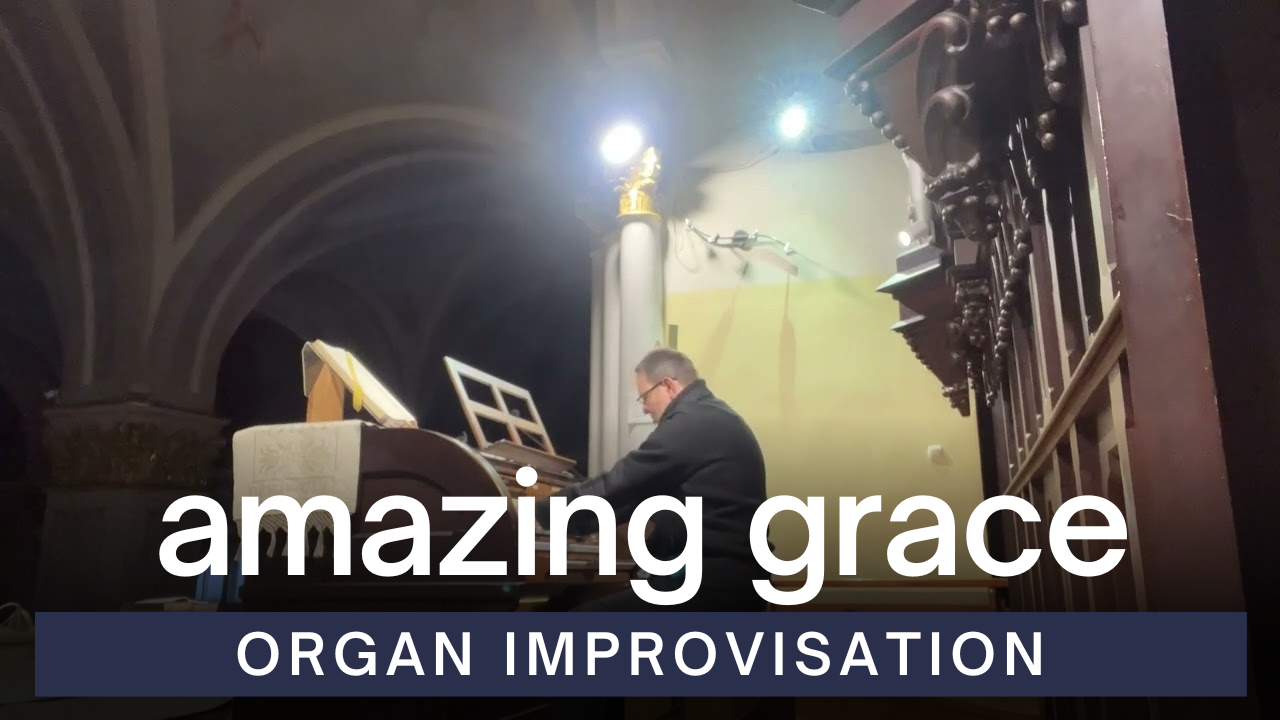
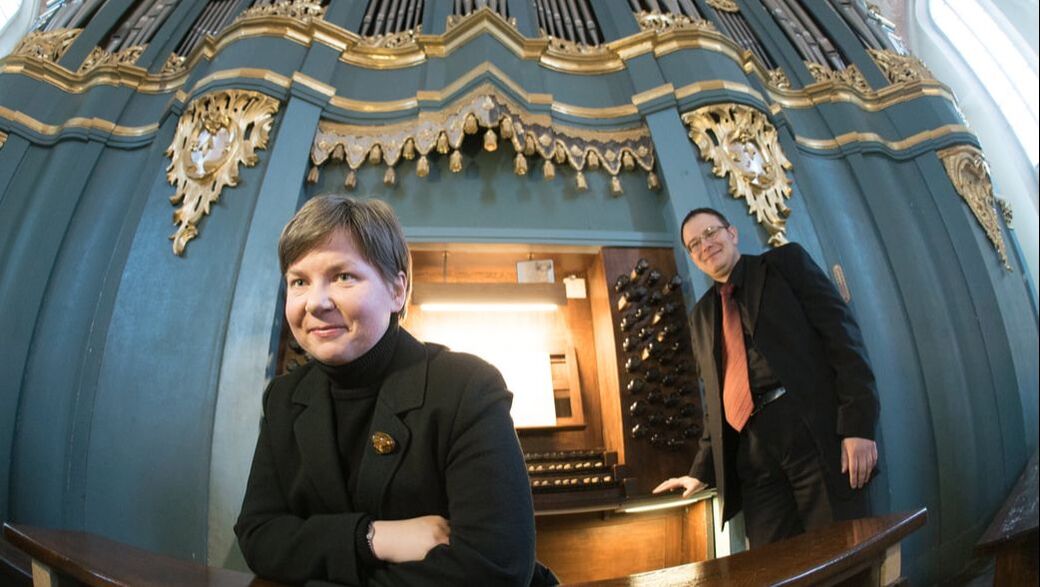
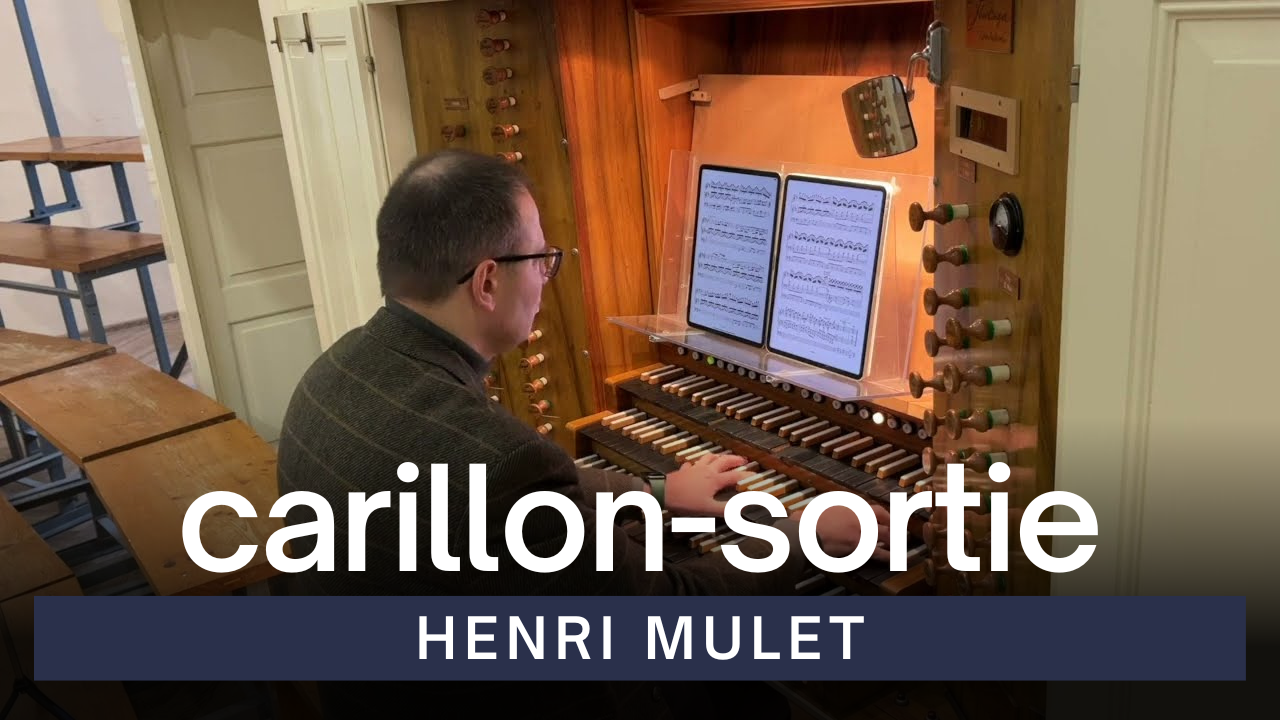
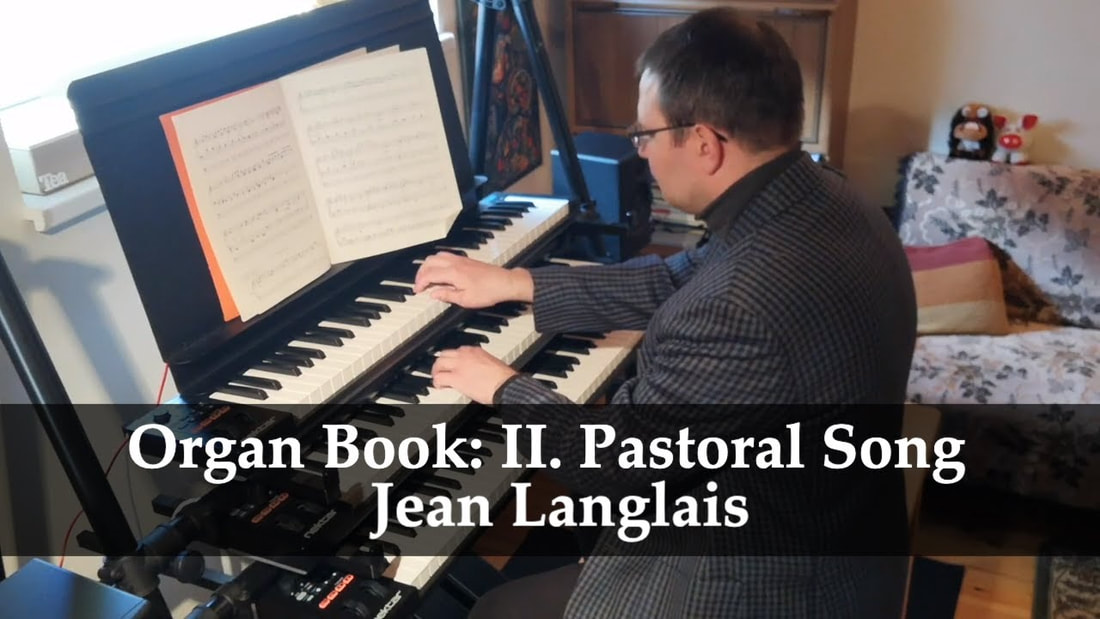
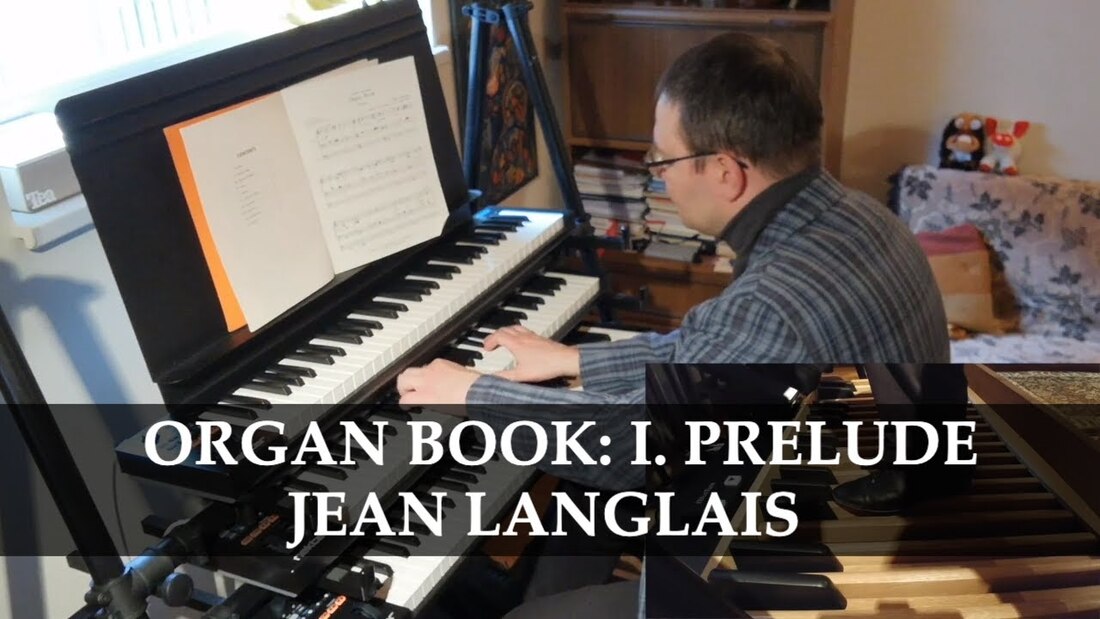
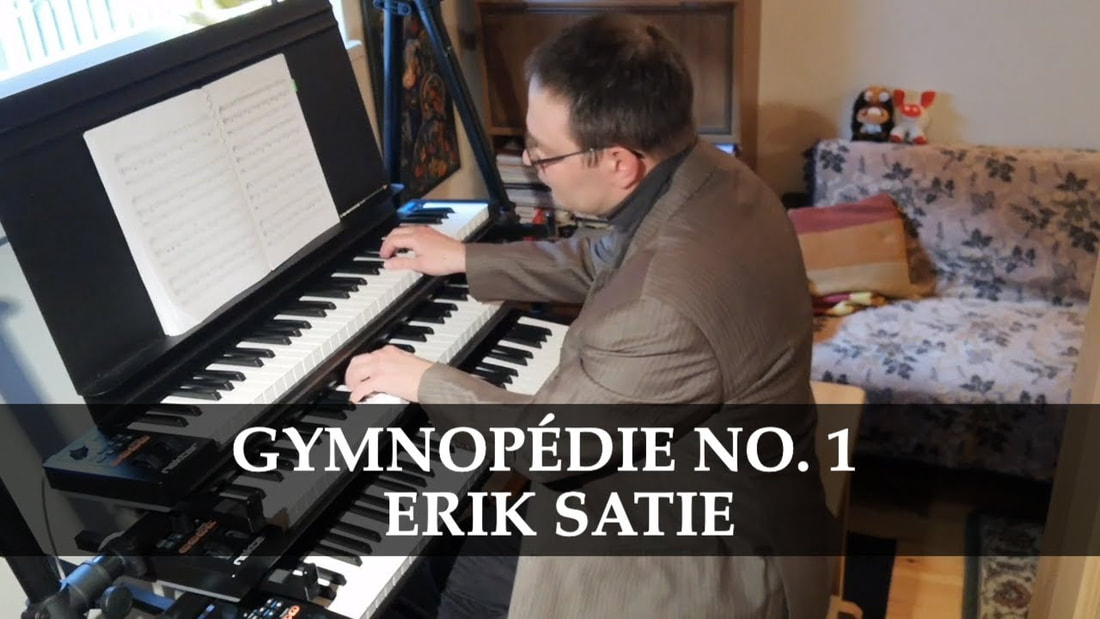
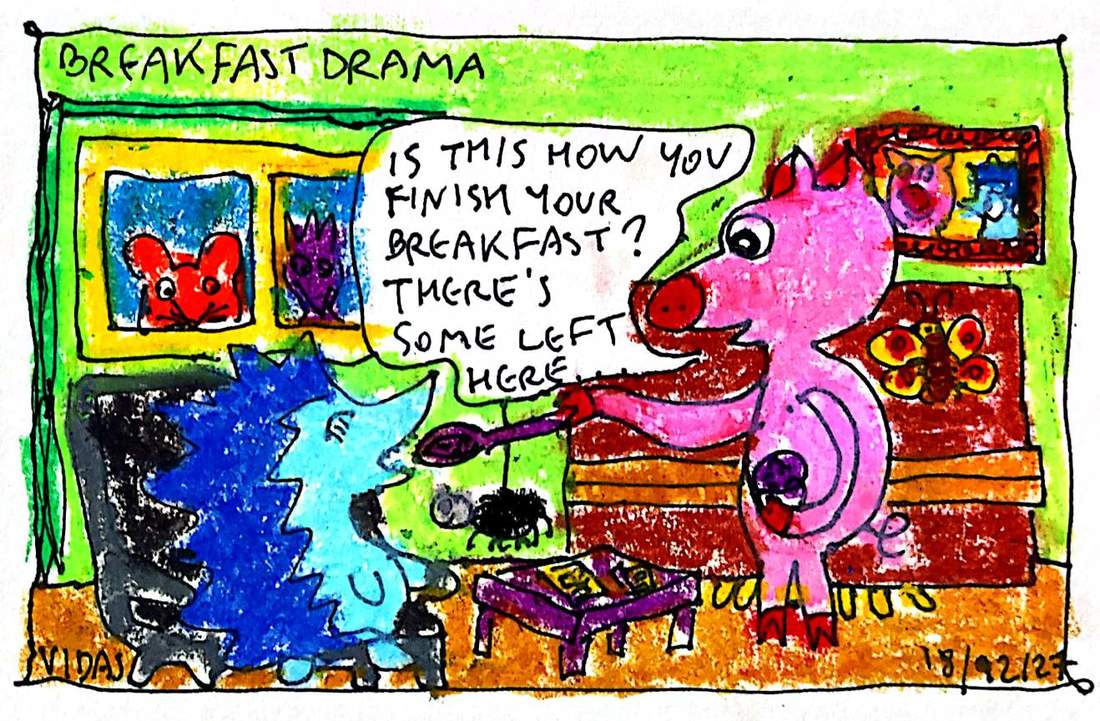
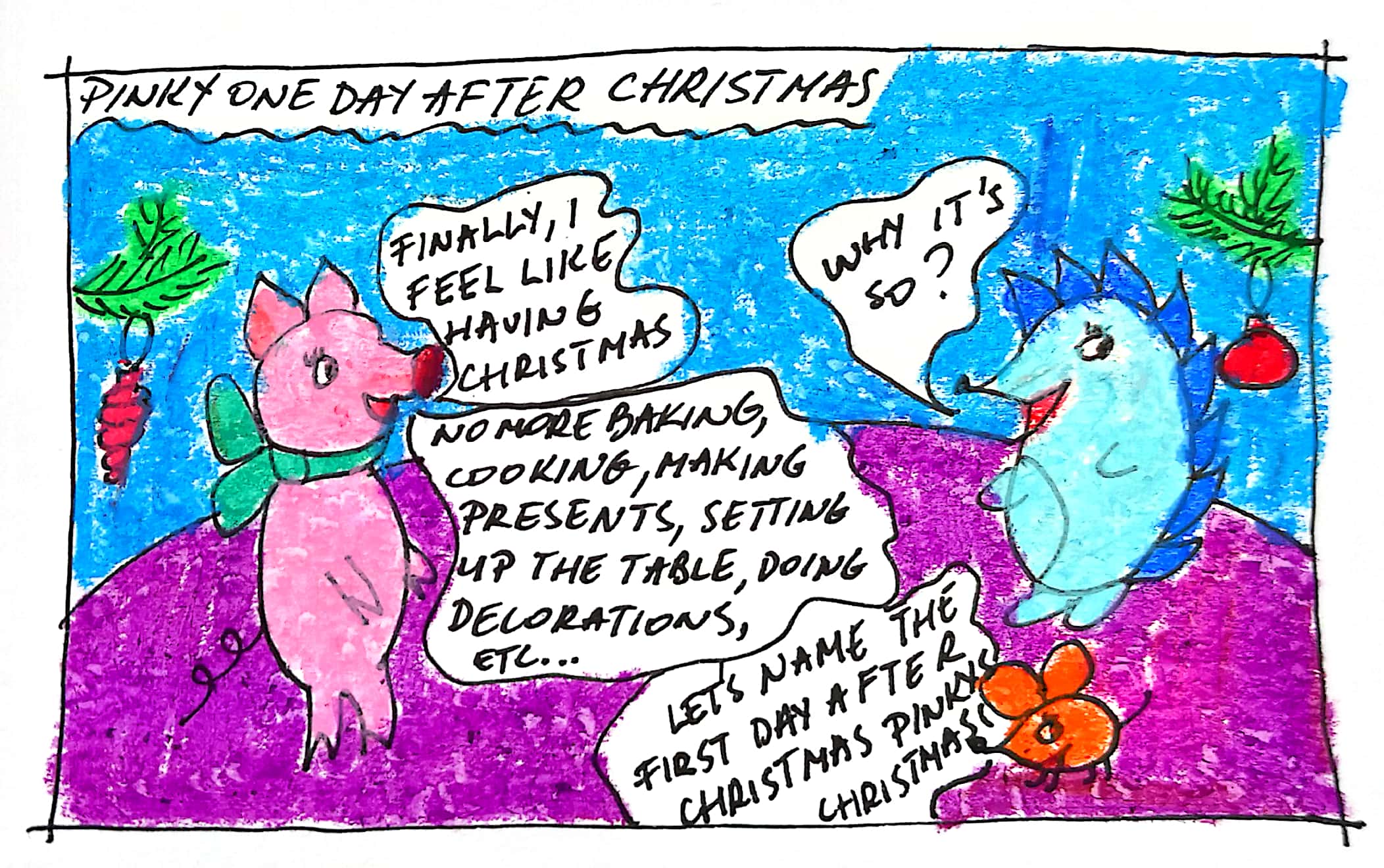



 RSS Feed
RSS Feed